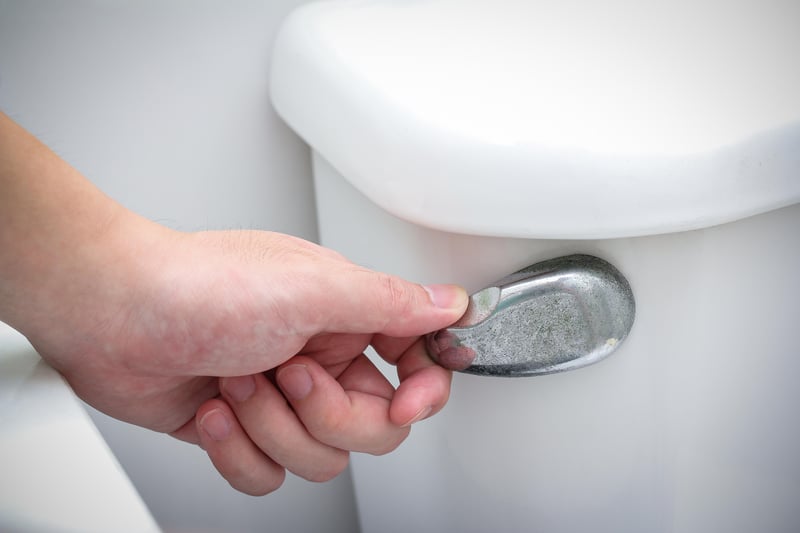Get Healthy!

- Amy Norton
- Posted December 13, 2022
Weight-Loss Surgery May Help Ease Urinary Incontinence
Weight-loss surgery can have many health benefits, and now a new study suggests that long-term relief from urinary incontinence is one of them.
Urinary incontinence (UI) is a common problem, and obesity is among the risk factors for it: Extra pounds put more pressure on the bladder and the muscles supporting it, which can cause urine to leak.
Because of that, weight loss is often encouraged when people have both obesity and UI. And research suggests that when people with severe obesity undergo weight-loss surgery, that can ease their bladder problems -- at least for the first couple of years.
The new study shows that for many people, the relief lasts.
The researchers found that of over 1,200 patients they tracked, more than half of those who'd had UI before weight-loss surgery showed a "sustained remission" in their symptoms over the course of seven years.
"I was excited to see that -- although there was some decline in the improvements seen in the first three years -- over half of patients were still in remission," said researcher Wendy King. She is an associate professor of epidemiology at the University of Pittsburgh School of Public Health.
No one is recommending weight-loss surgery just to manage UI, King and other experts stressed.
"It's major surgery, and it's a really big decision," King said. "It's not for everyone."
But if people are considering obesity surgery, she said, relief from UI could be considered as a potential benefit.
"I think this is something doctors should be discussing," King said. "Patients considering surgery should be given the whole picture of the potential benefits and risks."
The findings are based on 1,227 women and men who had weight-loss surgery at any of 10 U.S. hospitals. All had either gastric bypass surgery or sleeve gastrectomy, the two most common forms of obesity surgery.
Both procedures change the anatomy of the digestive system and limit the amount of food a person can eat before feeling full.
Among women, 52% had incontinence episodes at least once a week before surgery. One year after surgery, that had dropped to 15%. Some of that improvement slipped away by year three, when 20% of women had UI at least weekly. By year seven, that figure was 30%.
Fewer men in the study group had UI. (It's much more common among women generally, due to anatomy and factors like childbirth, King noted.) But the pattern was the same among male patients: Their UI improved the most in the first couple of years, then showed some degree of backslide.
King said the blame may lie with regained pounds and aging, which itself is a risk factor for UI.
Still, she said, many people with incontinence before surgery remained in remission at year seven: 56% of women and 74% of men. "Remission" meant, at a minimum, they had UI episodes less than once a week.
The findings were published online Dec. 9 in JAMA Network Open.
"It makes sense that losing weight, through surgery or other means, would help," said Dr. Jill Rabin, an obstetrician/gynecologist at Northwell Health, in New Hyde Park, N.Y.
If people can shed pounds with diet and exercise, that's ideal, since it avoids the risks of obesity surgery, said Rabin, who is also the author of the book Mind Over Bladder.
Rabin noted that even a moderate amount of weight loss can help some people with UI, though it's only one part of the story. Some other UI treatments include exercises to strengthen the pelvic floor muscles and, for women, vaginal inserts that support the urethra (the duct through which urine exits the body).
It's also important to remember that there are different types of UI, said Dr. Moiuri Siddique, director of female pelvic medicine at NYU Langone Hospital Brooklyn.
In general, Siddique said, weight loss is most effective for stress incontinence, where movement that puts pressure on the abdomen -- such as running, lifting, coughing or laughing -- triggers urine leakage.
It may be less effective for urgency incontinence, where an overactive bladder causes a frequent, uncontrollable need to urinate, she noted.
"I don't want people to think that if they have weight-loss surgery, that will eliminate their urinary incontinence," Siddique said.
What's key, both Siddique and Rabin stressed, is that patients get a correct diagnosis and good overall treatment plan for their urinary symptoms.
More information
The American Urological Association has more on urinary incontinence.
SOURCES: Wendy King, PhD, associate professor, epidemiology, University of Pittsburgh School of Public Health, Pittsburgh; Jill Rabin, MD, vice chair, education & development, obstetrician/gynecologist, Northshore University Hospital/LIJ Medical Center, and professor, obstetrics and gynecology, Zucker School of Medicine, Northwell Health, New Hyde Park, N.Y.; Moiuri Siddique, MD, assistant professor, obstetrics and gynecology and urology, NYU Grossman School of Medicine, New York City, and director, female pelvic medicine, NYU Langone Hospital Brooklyn; JAMA Network Open, Dec. 9, 2022, online







